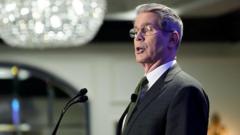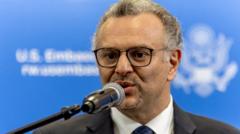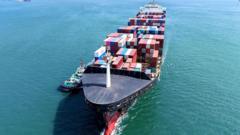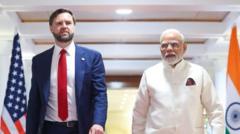In his recent statements, US Treasury Secretary Scott Bessent suggests that the ongoing trade friction with China presents a unique opportunity for a comprehensive agreement, provided China facilitates an economic transition away from reliance on manufacturing exports.
Prospects for a Lucrative Trade Agreement Between the US and China Highlighted by Treasury Secretary

Prospects for a Lucrative Trade Agreement Between the US and China Highlighted by Treasury Secretary
Treasury Secretary Scott Bessent emphasizes the possibility of a significant trade deal between the US and China amid rising economic tensions.
In a recent discussion on the evolving trade dynamics between the United States and China, Treasury Secretary Scott Bessent expressed optimism about the potential for a major trade agreement. He posited that there exists a “remarkable opportunity” for a significant deal that could benefit both nations, contingent upon China’s commitment to lessen its economic reliance on manufacturing-centered exports.
Bessent pointed out that "China understands it needs to change," reinforcing the idea that constructive economic transformation is vital for both sides. The ongoing trade war has intensified in recent weeks, leading to heightened tariffs and strained financial markets. With the Trump administration implementing tariffs as high as 145% on Chinese imports in an effort to protect American manufacturing jobs, China retaliated with a 125% tax on US goods.
Speaking at the International Monetary Fund (IMF) conference, Bessent acknowledged the seriousness of the situation, emphasizing the need for rebalancing in the economic strategies of both nations. He stressed that fostering a stronger domestic economy in China could provide the necessary impetus for progress. “If they are serious about moving away from an export-driven model, we should collaborate to facilitate this transition,” he stated.
Beyond trade concerns, Bessent advocated for a recommitment from the IMF and the World Bank to their foundational missions of economic stability and development. He criticized their diversion into projects he deemed peripheral, such as climate issues and social equity, insisting these do not align with the core functions of these institutions.





















